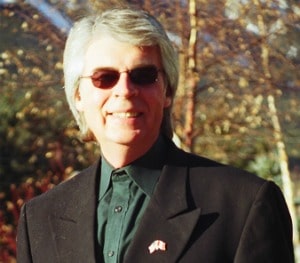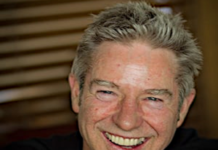
(By Ronald Robinson) I can usually tell when a PD has run out of gas. They start providing motivational sessions – what we used to call “sparkle meetings.” When a PD can’t identify what makes an effective, on-air communicator (or writer), and those things that limit the staff, they have to switch to the “Sis-boom-bah”-mode.
“What you really need” they will assert, “is drive, imagination, goals, tenacity, perseverance and, above all – teamwork!” While difficult to argue against, these edicts are still enough to make staffers puke “What you absolutely require” they will continue, “is a Hunger.”
It is, at this point, the senior members, those who have been around the business for a while, prepare themselves for a lengthy litany of milquetoast adages, assertions, and thoroughly uninspiring generalizations. “Where’s the beef?” Indeed. More like, “Where’s the bun?” The smarter employees bring coffee.
Since the majority of PDs have nary a clue about the actual communicative aspects of being on the radio, they have little choice but to become amateur psychologists, motivational experts, and nurse’s aides. They become character sleuths, readers of potentials and tealeaves. But they do have access to some materials that might be of some use, I guess.
There have been allegations that what is missing from the makeup of the on-air and writing staffs is the aforementioned “hunger”…
– Hunger to dive in. Without testing the waters?
– Hunger for more responsibilities, more work. At what cost and for what compensation or benefit?
– Hunger for more solutions and less excuses. Often, what are labeled “excuses” are actually…reasons.
– Hunger for personal improvement. Available within the confines of the corporate, radio environments? Seriously?
– Hunger to make a decent living. Good luck with that.
I have known a couple of PDs – and sales types – who had no idea of what they were supposed to be doing. The next-best approach, then, was in supplying the magic of the application of “affirmations.” And, I am serious about this. Most people are aware of the grandfather of affirmations – psychologist Emile Coue’s “Every day, in every way, I am getting better and better.” I understand: Who could argue against a little “positive autosuggestion”? Well, I shall explain the “whom,” or rather the “what.”
Even when we are awake, alert, and jacked up on caffeine, we are operating with both our conscious and unconscious faculties being fully functional – so far as that goes. Our consciousness has severe limitations, if it keeps us from walking into a wall or onto the street, we can be grateful that some consciousness component is on the job.
When we introduce a conscious affirmation to ourselves, often in front of a mirror and in the present tense – “I am getting better and better” – our unconscious has to riffle through our historical experiences (“transderivational search”) to come up with some, a little, any corroborating evidence. When it can’t, the understanding of the unconscious becomes one of “No you ain’t!”
Really Big Corporate Radio is so screwed. This isn’t because they can’t run a business. They can. It’s because the very fundamentals and priorities of their businesses are not being addressed. Hell, they are not even being considered. And there is a reason rather than an excuse for that, too. They have no idea what those priorities and fundamentals might be.
Learnin’ to talk good English and the approaches to doing so, along with the many nuances of speech, especially when delivered through an electronic medium, have yet to be folded into the mix. While the majority of on-air presenters, through no fault, necessarily, of their own, sound like they couldn’t pass a literacy test, they are also missing the educational opportunities that could take them to superior levels of communication. Such a step upward and forward can only result in greater staff effectiveness, influence, and longer periods of listener attention
If there is to be a “hunger,” let it be for an appropriate, useful education. The stations’ ownership and management are the only ones in a position to provide it – if they only knew what it was.
Ronald T. Robinson has been involved in Canadian radio since the ’60s as a performer, writer and coach, and has trained and certified as a personal counselor. E-mail him at [email protected].





